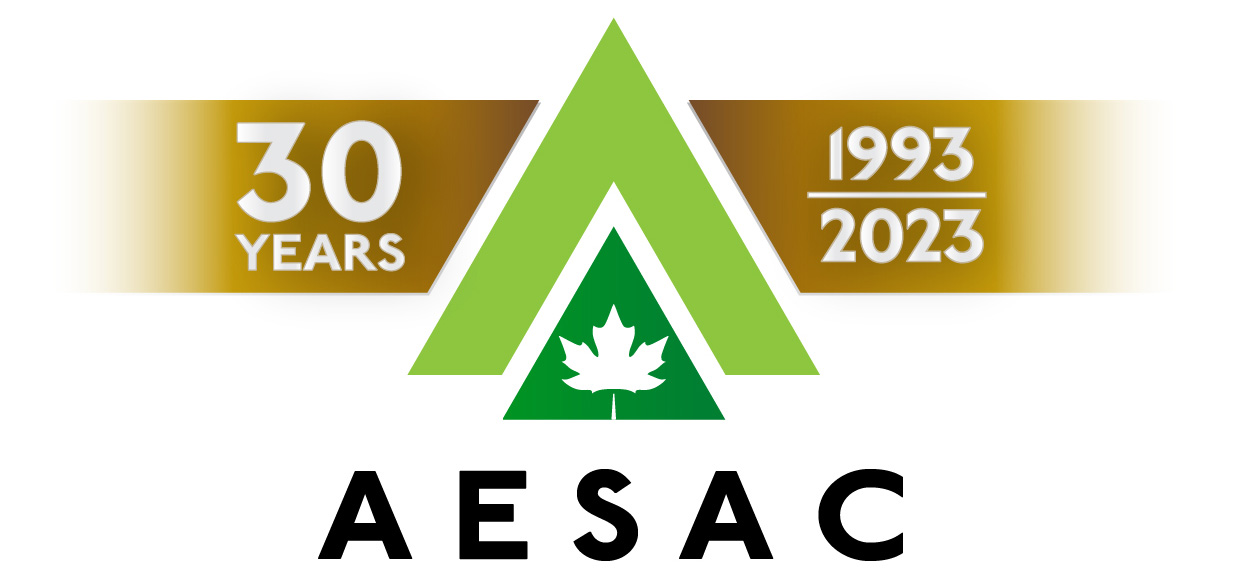- Home
- Training Courses
- Membership
- About Us
- Instructors Blog
- December 2023: All I Want For Christmas
- November 2023: ESA Report Reviews
- October 2023: Can AI Write an ESA Report?
- September 2023: Getting Paid... or Not
- August 2023: Take Me Back...
- July 2023: To Bid or Not To Bid
- June 2023: Selecting a Supplier
- April 2023: Phase 1 Problems, Part 3
- March 2023: Phase 1 Problems, Part 2
- February 2023: Phase 1 Problems, Part 1
- January 2023: Working Outside in Winter
- 2022 Blogs
- 2021 Blogs
- December 2021: Asbestos in your Home
- Sept 2021: Dirty Jars And Other Bad Things… Part 2
- August 2021: Dirty Jars And Other Bad Things… Part 1
- July 2021: How do you want that drawing to look? Part 2
- June 2021: How Did You Want That Drawing To Look? Part 1
- April 2021: So You Need a RSC... Part 2
- March 2021: So You Need a RSC... Part 1
- February 2021: What's In Your Toolbox? Part 2
- January 2021: What's In Your Toolbox? Part 1
- 2020 Blogs
- December 2020: A Day in the Life, Part 2
- November 2020: A Day in the Life, Part 1
- October 2020: Exploring Your Career Path
- September 2020: So You Want To Start Your Own Business - Part 2
- August 2020- So You Want to Start Your Own Business
- June 2020: Effective Communication
- May 2020: Tips For Working From Home
- April 2020: Conducting ESA’s During a Pandemic
- March 2020: It's Not Easy Being Green
- February 2020: Looking Ahead; Bold Predictions for the Next Decade
- January 2020: Looking Back; A Decade in Review
- 2019 Blogs
- 2018 Blogs
- 2017 Blogs
- 2016 Blogs
- 2015 Blogs
- Find an AESAC Member
Menu- Home
- Training Courses
- » Training Courses
- » Webinar Series
- » Calendar of Events
- » Course Registration
- » Course Instructors
- » Testimonials
- Membership
- » Become a Member
- » Certifications
- » Membership Search
- » Update Member Profile
- » Members Only
- » » Member Login
- » » Membership Renewal
- » » Create/Change Password
- » » CESA Certification Application
- About Us
- » About AESAC
- » Course Instructors
- » Contact Us
- Instructors Blog
- » December 2023: All I Want For Christmas
- » November 2023: ESA Report Reviews
- » October 2023: Can AI Write an ESA Report?
- » September 2023: Getting Paid... or Not
- » August 2023: Take Me Back...
- » July 2023: To Bid or Not To Bid
- » June 2023: Selecting a Supplier
- » April 2023: Phase 1 Problems, Part 3
- » March 2023: Phase 1 Problems, Part 2
- » February 2023: Phase 1 Problems, Part 1
- » January 2023: Working Outside in Winter
- » 2022 Blogs
- » » December 2022: Advice To My Younger Self
- » » October 2022: Pre-Purchase Due Diligence
- » » Sept 2022: Words Matter
- » » July 2022: Let Us Come To You
- » » April 2022: Due Diligence
- » » March 2022: Time Management
- » » February 2022: Spinning Augers... Part 2
- » » January 2022: Spinning Augers... Part 1
- » 2021 Blogs
- » » December 2021: Asbestos in your Home
- » » Sept 2021: Dirty Jars And Other Bad Things… Part 2
- » » August 2021: Dirty Jars And Other Bad Things… Part 1
- » » July 2021: How do you want that drawing to look? Part 2
- » » June 2021: How Did You Want That Drawing To Look? Part 1
- » » April 2021: So You Need a RSC... Part 2
- » » March 2021: So You Need a RSC... Part 1
- » » February 2021: What's In Your Toolbox? Part 2
- » » January 2021: What's In Your Toolbox? Part 1
- » 2020 Blogs
- » » December 2020: A Day in the Life, Part 2
- » » November 2020: A Day in the Life, Part 1
- » » October 2020: Exploring Your Career Path
- » » September 2020: So You Want To Start Your Own Business - Part 2
- » » August 2020- So You Want to Start Your Own Business
- » » June 2020: Effective Communication
- » » May 2020: Tips For Working From Home
- » » April 2020: Conducting ESA’s During a Pandemic
- » » March 2020: It's Not Easy Being Green
- » » February 2020: Looking Ahead; Bold Predictions for the Next Decade
- » » January 2020: Looking Back; A Decade in Review
- » 2019 Blogs
- » » November 2019
- » » September 2019
- » » August 2019
- » » July 2019
- » » May 2019
- » » March 2019
- » » February 2019
- » » January 2019
- » 2018 Blogs
- » » November 2018
- » » October 2018
- » » September 2018
- » » August 2018
- » » July 2018
- » » June 2018
- » » May 2018
- » » March 2018
- » » February 2018
- » » January 2018
- » 2017 Blogs
- » » April 2017
- » » June 2017
- » » August 2017
- » » September 2017
- » » December 2017
- » 2016 Blogs
- » » October 2016
- » » September 2016
- » » August 2016
- » » July 2016
- » » June 2016
- » » March 2016
- » » January 2016
- » » December 2016
- » » November 2016
- » 2015 Blogs
- » » April 2015
- » » July 2015
- » » September 2015
- » » October 2015
- » » December 2015
- Find an AESAC Member
This month I will discuss some of the skills most sought by employers in the environmental consulting field, specifically environmental site assessment and remediation. I surveyed a few colleagues in ownership and senior management positions to see what skill sets they are looking for in potential new hires at the junior to intermediate level. Thanks a lot to my friends and colleagues for their valuable input to this series of blogs. A big shout out to Jen Fletcher of H3M, Dave Wade of Premier Environmental Services and Chris Helmer of Hydrogeology Consulting Services. The desirable skill sets were grouped into ‘hard’ (technical) and ‘soft’ (people) skills, although there were some items like communication that bridged both the technical and people side. First up, the technical skills.
Field Experience:
Actual hands-on experience in conducting Phase One and Two Environmental Site Assessments and/or other related items such as contaminant management, remediation or monitoring is invaluable. Practical experience in logging boreholes, collecting soil and groundwater samples, drill supervision, hydrogeological monitoring (water level measurements, well pumping tests), and other aspects of field investigation are important as well. Familiarity with field monitoring and sampling equipment and techniques is a great asset. The ability to conduct or learn other tasks such as hazardous materials assessments, indoor air quality, and abatement monitoring are also helpful.Technical Writing and Communication:
A large part of environmental consulting involves communication - with clients, staff, sub-contractors, other consultants and regulators. The ability to speak and write clearly (in one or more of Canada’a official languages), and to successfully communicate your observations, findings and conclusions so that all stakeholders can fully understand is vital. Of course the ability to use appropriate software platforms is important and almost everyone should be able to do this; but demonstrating that you can write a high-quality technical report or proposal, and keep exemplary project notes is even more important. More considerations for communication skills are included in a future section on ‘soft’ skills.Logistics & Project Coordination:
Many projects in environmental consulting are complex, and can include multiple clients, and require working on multi-stage projects with a variety of sub-contractors and other consultants, and often outside lawyers, regulators and other stakeholders. Logistics, scheduling, project coordination and oversight are imperative in delivering projects accurately, on time and within budget. While junior and entry level staff wouldn’t be expected to manage such complex projects right away, everyone involved has an important part to play, and many other aspects of the project are interdependent on all players completing their part. A delay or mistake at one level can have huge implications in other areas of the project. Demonstrating expertise in project and time management can really elevate a potential job candidate’s chance of getting hired. If you don’t yet have such experience, you can still up your game by listening closely; doing what’s asked of you to the best of your ability; and cooperating/communicating/coordinating effectively with your other team members.Next month, I’ll review some of the desired ‘soft’ skills for potential job seekers.
Bill Leedham, P. Geo., CESA
Bill is the Head Instructor and Course Developer for the Associated Environmental Site Assessors of Canada (www.aesac.ca); and the founder and President of Down 2 Earth Environmental Services Inc. You can contact Bill at info@down2earthenvironmental.ca
Training Courses
Membership
About Us
Contact UsCopyright (c) 2024 Associated Environmental Site Assessors of Canada; AESAC Inc.



